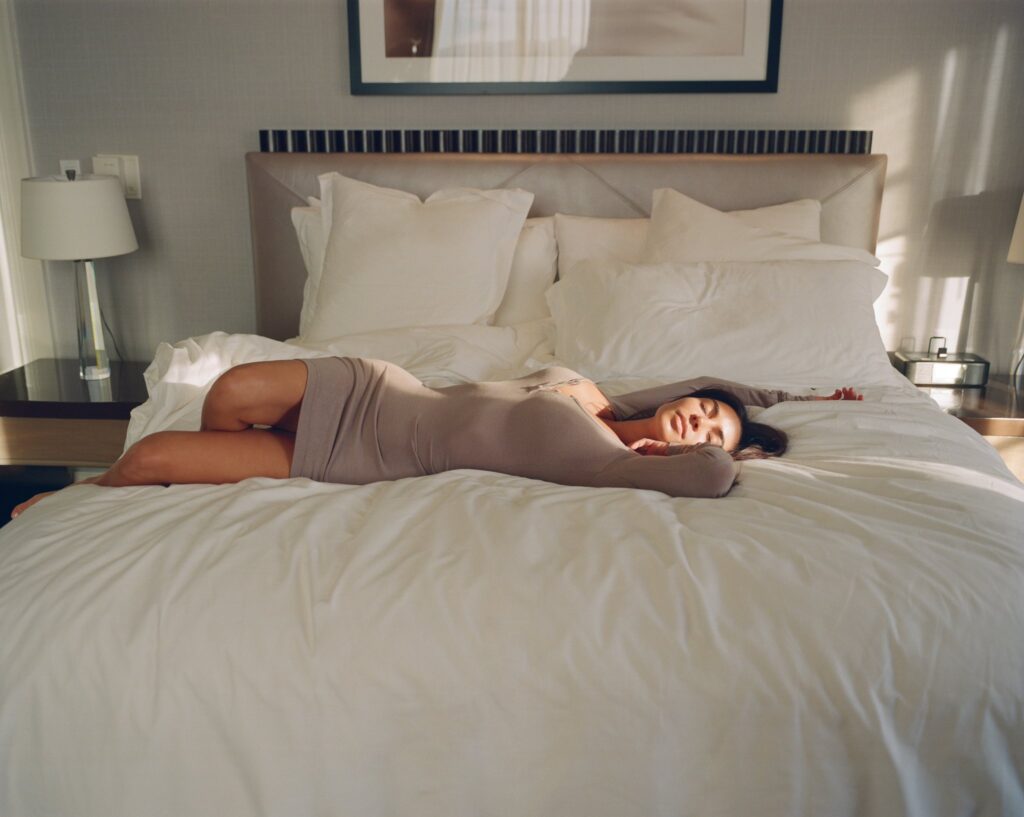The first heatwave of the summer has arrived and tado° reveals in a study that Spaniards were the worst sleepers in Europe last summer due to high temperatures. In addition, it has been shown that it is not necessary for the average outside temperature during the day to be very high to spend sweltering nights and that high temperatures during the night alter the body’s schedule, causing restlessness, reduction of deep waves and the REM phase.
Last summer, Spaniards suffered the worst sleep difficulties in Europe, with indoor temperatures in homes exceeding 27°C for 18 consecutive nights. Sleep Charity experts say that a large proportion of the population suffers from night-time insomnia when bedroom temperatures are at or above 24°C(1); in the case of Spaniards, this temperature was maintained on all but four nights in the summer of 2023(2).
Moreover, while the country is in the midst of its first heatwave, tado° reveals that the average daytime outside temperature does not need to be very high to make for a sweltering night. In fact, according to a study of temperatures in more than 35,000 Spanish homes, it shows that the average outdoor temperature during the day can drop to as low as 19°C, while the indoor temperature at night can reach 24°C.

Temperature significantly influences sleep quality
According to Sleep Charity, a bedroom temperature of 16°C to 18°C is ideal. In fact, the human body is thought to cool down at night, a sign that it is preparing for sleep, which is why it is difficult to fall asleep when it is too hot. Studies show that high night-time temperatures alter the body’s schedule, leading to increased restlessness, reduced deep-wave sleep and REM (rapid eye movement).
In Spain, during 91 of the 95 summer nights in 2023, the average night-time indoor temperature exceeded 24°C. The highest recorded peak was in August, with 18 consecutive nights with temperatures above 27°C on average, the longest period in Europe, and two nights when the thermometer exceeded 29°C(3).

Recommendations for a good night’s sleep in heat waves
- Use light bedding or even just the sheets.
- Cool the house during the hottest hours of the day by lowering blinds and curtains when temperatures rise.
- Stay hydrated. During the day, water is essential to cope with heat waves and will also help you fall asleep.
- Air conditioning, this system is the best ally. If you do not have air conditioning, use a fan and place a container of ice in front of it to cool the circulating air.
- Shower with cool, not cold, water to reduce body temperature. The body gives off heat mainly through the feet and hands. Therefore, leaving your feet in the open air can have a cooling effect.

Sigue toda la información de HIGHXTAR desde Facebook, Twitter o Instagram
